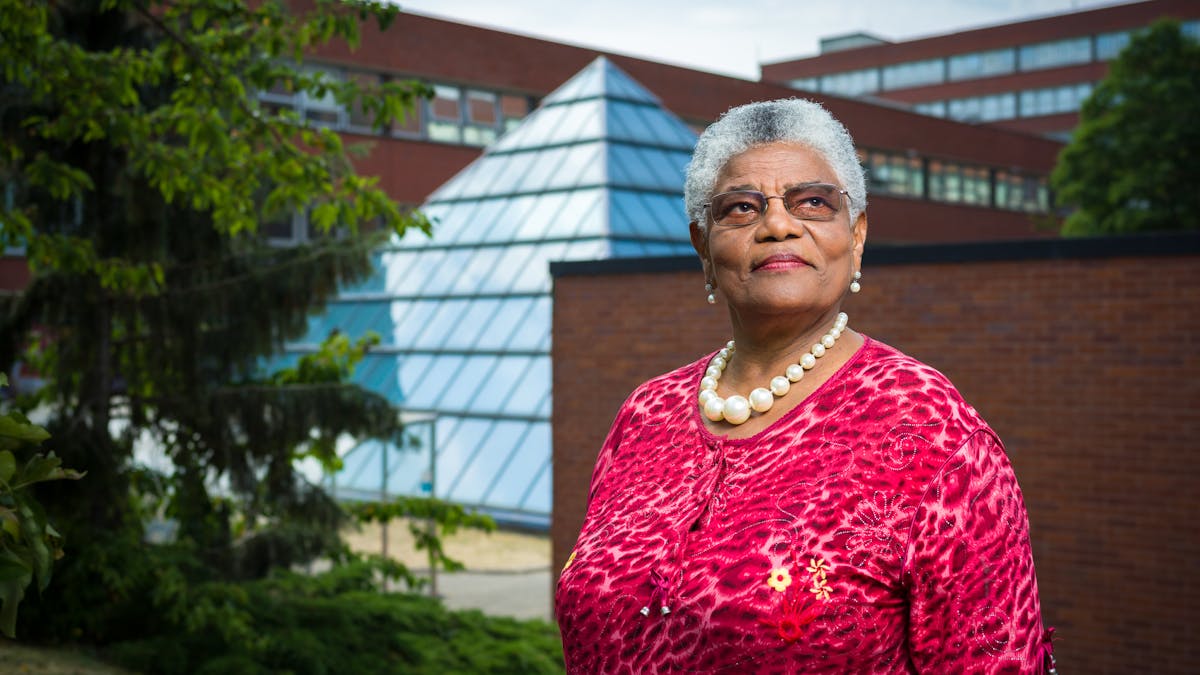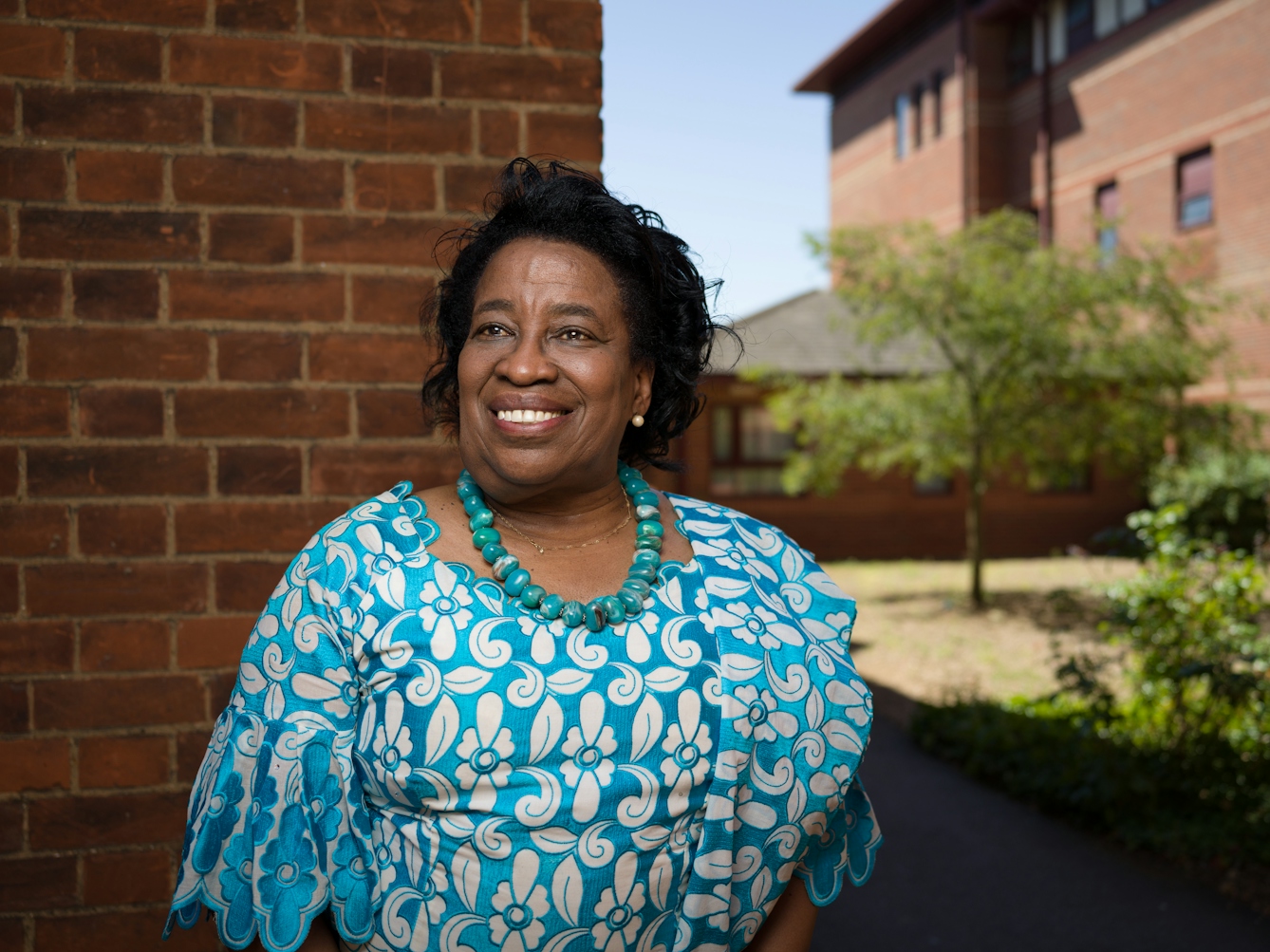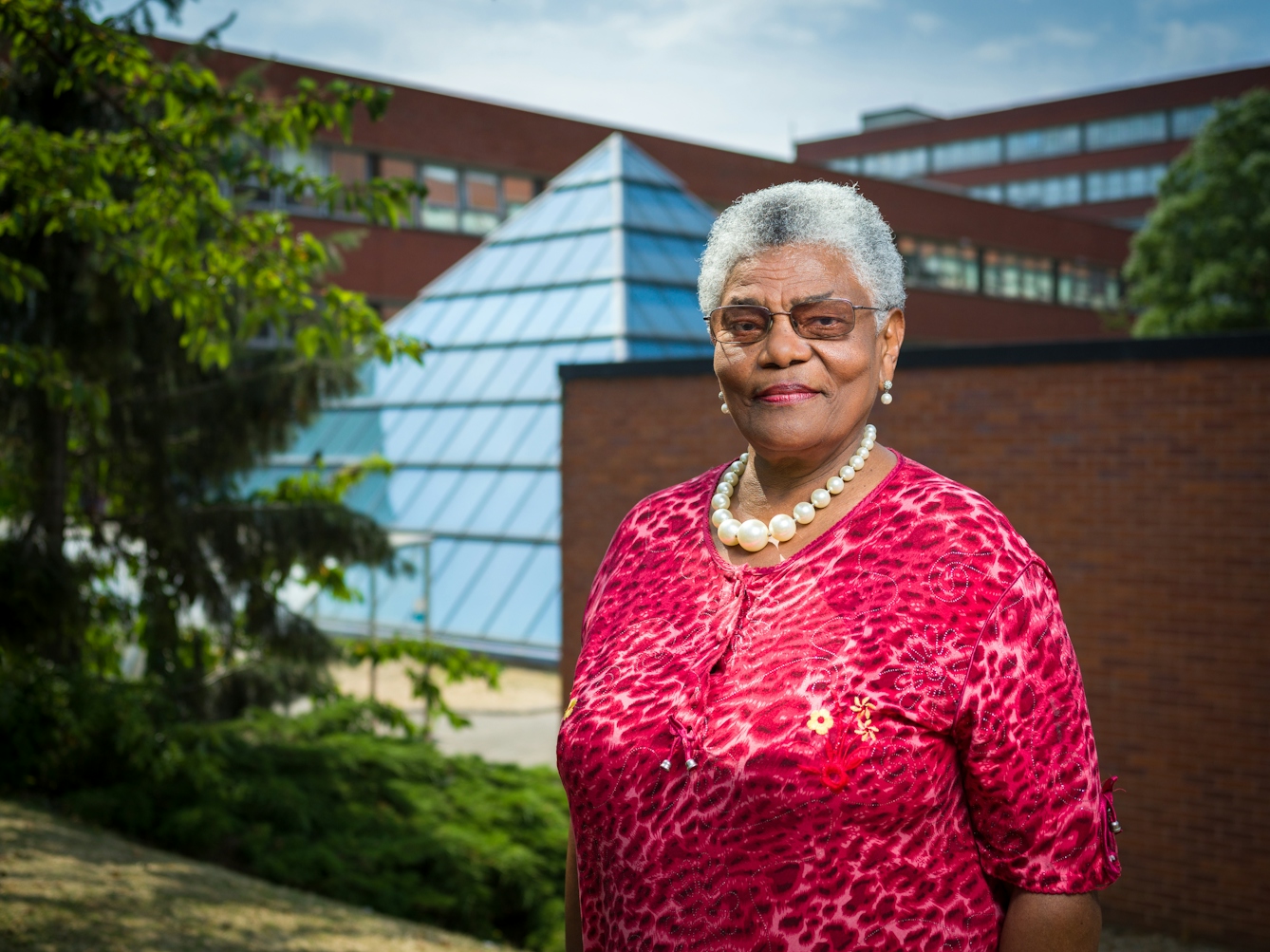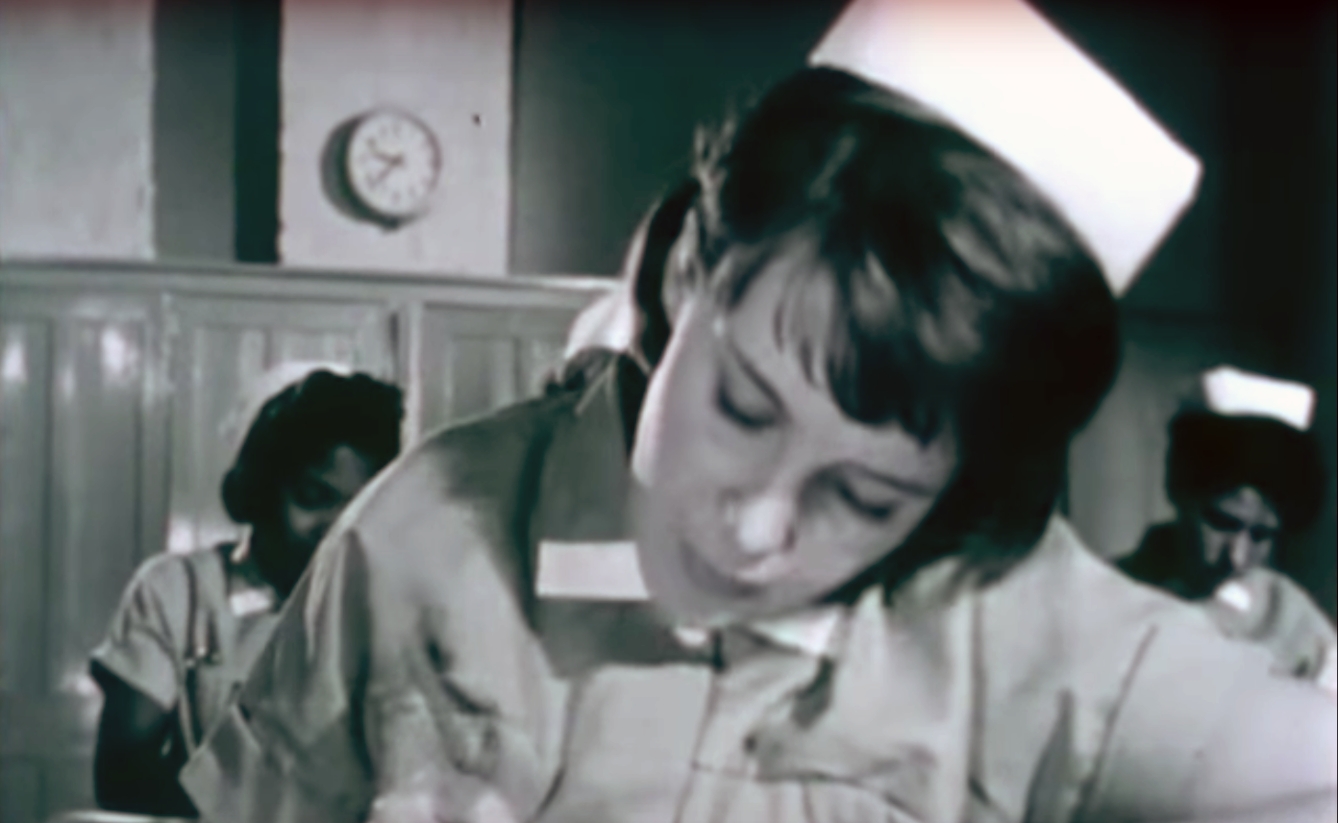Mass migration from Britain’s former colonies was a huge boon to the NHS, which by the 1960s had become the country’s biggest employer. But these thousands of much-needed medical staff faced widespread racism to build lives and careers in their new home.
Medics, migration and the NHS
Words by Cal Flynportraits by Benjamin Gilbertportraits by Thomas S G Farnettiaverage reading time 6 minutes
- Serial

The advent of the NHS coincided with another major change in British society: the mass movement to the UK of people from its former colonies. This influx of migrant workers – much-required during a time of staff shortages – would force the country to face its prejudices, and the increasingly multicultural NHS workforce would include some of the most visible ambassadors of this social change.
In 1948, the British Nationality Act awarded citizenship and full rights of entry to those living in Commonwealth countries. That June, as the government made its frantic preparations to take over the nation’s hospitals, the HMT Empire Windrush docked in London, carrying hundreds of passengers from the West Indies intending to start a new life in the UK. The ship’s arrival marked the symbolic starting point of postwar mass immigration, as the ‘mother country’ attracted large numbers of workers and their families from outside Europe for the first time.
The film ‘Enrolled Nurse’ aimed to attract people to train as nurses. It showed women of different ethnicities enjoying their training together.
Many of them were attracted by official recruitment drives by British government bodies, which were desperately seeking skilled workers and willing trainees in a time of full employment. Unemployment had hit a postwar low of 1 per cent in 1955, or 215,800 people, and between 1950 and 1973 it averaged 2 per cent: good news for workers, but harder for their employers.
The NHS, which became Britain’s biggest employer in 1961, engaged thousands of Commonwealth workers: by 1968, nearly half of all hospital doctors below the rank of consultant came from abroad, while around a third of student nurse and midwife roles were filled by Commonwealth migrants, many of them from the Caribbean. But though these new arrivals were welcomed by politicians and press alike, the response from the British public was more mixed.
Difficult transitions
In 1965, Cynthia Stuart travelled to the UK from Belize (then still known as British Honduras) to study nursing in Southampton. She was 19 years old. “I was focused,“ she recalls now. “I wasn’t coming to mess about.” Still, it was a long way from home: “The Home Sister took me to my room… and when she left, I looked out the window and thought: ‘What have I done?’ I remember putting my head on the windowsill and I bellowed like a cow.”
Cynthia was one of three student nurses of colour. And although her classmates were generally friendly and curious, there were occasions when she sensed wariness. “Nobody pushed me or spat in my face or called me a n***** or anything like that,” she says firmly. “In Southampton it was subtle.” When she met her colleagues in town, often they would cross the road to avoid her. “Now and again, someone in their dotage would say: ‘I don’t want any darkies to attend to me.’ But the Ward Sister would come up and say, ‘Now, now, we’re not having any of that,’ and we just got on with it! Sisters were sisters in those days.”
She didn’t let it trouble her, she says. “We had to take into account that we, people of colour, were new to people.” Cynthia excelled in her training, went on to qualify as a midwife and later lectured in midwifery during a 47-year career. Her dedication and positive outlook allowed her to thrive in her adopted country – even as British society was struggling to come to terms with its changing demographic.
Staff who had come from overseas performed a variety of roles for the NHS, such as nursing and dispensing medicine.
The rise of Powellism
One public figure who was growing increasingly vocal in his opposition to unchecked immigration from the Commonwealth was a Conservative MP called Enoch Powell. Powell – a brilliant Classical scholar and once the army’s youngest brigadier – had served as the Health Minister under Harold Macmillan in the early 1960s.
During that period, he had launched a campaign to recruit doctors from overseas (and succeeded in attracting 18,000 from India and Pakistan), whom he had praised as “a useful and substantial reinforcement of the staffing of our hospitals”. And at the time Powell was still regarded as something of a liberal voice, ever since he had voiced a blistering attack on the Kenyan colonial ministers in 1959.
But in the years to follow, Powell would become increasingly fixated upon the perceived perils of unchecked immigration. In April 1968, when he stood to address the Conservative Association in Birmingham, he would make the most infamous speech in British history, decrying the influx of migrants and warning that in time “the black man will have the whip hand over the white man”.
The Times denounced his ‘Rivers of Blood’ tirade as “evil”, and he was sacked from the Shadow Cabinet the following day. But Powell’s words reflected an ugly mood in the country: shortly afterwards, a Gallup poll showed that 74 per cent of those asked had agreed with him; the following year the same pollster declared Powell the public’s “most admired person”.
Faces of the NHS: 1960s

Cynthia Stuart recalls her excitement at coming to the UK. “The wonderful bit was being put on the train at Waterloo and doing this very long journey to Southampton [where] the Home Sister just appeared and she greeted me and I felt really good.” Then toad-in-the-hole was announced for lunch. “I thought, ‘Dear God, I had never eaten toad and I’m going to eat toad in Southampton!’ So that’s my memory of meeting the NHS and starting my training – toad-in-the-hole, my first meal, which I couldn’t have because I didn’t know what it was, so they made me an omelette.”

Ossie Fernando came to the UK from Sri Lanka and joined the NHS as a trainee doctor in 1963. “I loved working with senior clinicians, old-fashioned matrons... very disciplined wards are my first memory of the NHS.” Ossie experienced a number of different roles during his training, until, “gradually it dawned on me that specialisation was becoming more important... I went into transplantation, which was a completely new field in 1968 when I went into it.”

Cecilia Brown arrived in the UK from Grenada on 2 October 1966 to train as a nurse. She recalls that there was very little time to acclimatise: “Maybe if I had family here I would have tried to come up a little time before and learned a little about England, but I came up and I had to start my training in the next two days. So it was very hard, but it was good and I enjoyed it.”
By 1969, the staff shortages in the NHS had begun to abate.
A benevolent presence
In this climate, therefore, the behaviour of black and minority ethnic medical staff came under unusual scrutiny, and they would come to play a significant role in race relations in the UK.
“The NHS was the first place in which many people in Britain came into contact with people of colour,” says Roberta Bivens, joint director of the People’s History project. “So to come into contact with someone who is professionally trained, who is helping you and instructing you and telling you what to do, stripping you naked and treating the part of you that is injured or ill… that’s an incredibly intimate relationship between clinical professionals and the patient.”
In the inflammatory public debate that raged across the newspaper pages, black NHS nurses and doctors found themselves invoked as symbols of the benevolence of immigration. “These people are the ones caring for you and yours, for your granddaughter, your wife, your husband who just had a heart attack,” adds Bivens. “How could anyone say they were burdens on our public services when they themselves were providing the public service?”
Though racial tensions have reduced since the 1960s, unfortunately they have never completely gone away. Black and minority ethnic doctors are more likely to face patient complaints and to face fitness-to-practice investigations, for example, thought to be a symptom of continuing bias.
But migrant workers have made a sizeable impact on the NHS, from the Windrush Generation nurses who ‘saved the NHS’ to the 25 per cent of foreign national doctors employed by the service today. Hundreds of thousands of people have come to the UK to work for our health service, and many of them have stayed to make it their home. Their compassion, diligence and dignity in the face of racism has played large part in their integration and acceptance into modern society.
About the contributors
Cal Flyn
Cal Flyn is a writer and reporter from the Highlands of Scotland. She writes across the British press, including the Guardian, the Sunday Times, the Daily Telegraph, Prospect and New Statesman. Her first book, ‘Thicker Than Water’, was published by William Collins in 2016, and selected by the Times as one of the best books of that year.
Benjamin Gilbert
Ben is a senior photographer for Wellcome. He is happiest when telling stories with his photographs, whether that be the health implications of rural-to-urban migration in India, or the dedication of the workers who power the NHS.
Thomas S G Farnetti
Thomas is a London-based photographer working for Wellcome. He thrives when collaborating on projects and visual stories. He hails from Italy via the North East of England.





